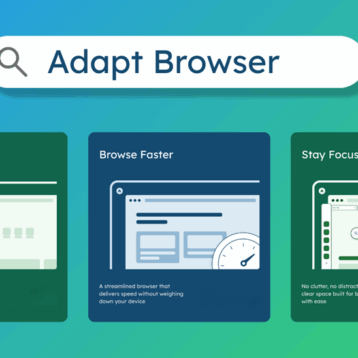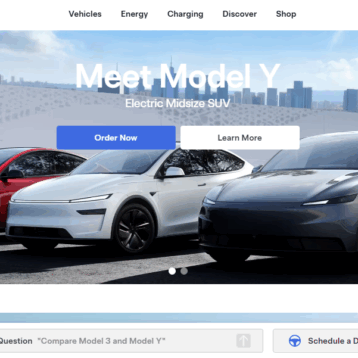The demand for data scientist jobs is soaring as businesses increasingly rely on AI and data science to drive decisions, enhance customer experiences, and fuel innovation. From healthcare and finance to e-commerce and technology, companies are actively hiring skilled data professionals to extract valuable insights from complex datasets.

With rapid advancements in AI and machine learning, staying ahead requires the right expertise and practical experience. That’s where upGrad’s Data Science Bootcamp comes in. This program equips you with industry-relevant skills, real-world projects, and mentorship to help you secure high-paying roles in top organizations.
Let’s dive into the top 10 career opportunities for data scientists and how you can prepare for them.
What are the Top Jobs for Data Scientists?
With the surge in AI-driven industries, data scientist jobs are more diverse and lucrative than ever. Whether in finance, healthcare, or technology, organizations are actively hiring data experts who can turn raw data into actionable insights.
Below are the top 10 career paths for data scientists, their average salaries, and key responsibilities.
| Data Scientist Role | Average Annual Salary |
| Data Scientist | ₹8L – ₹20.0L/yr |
| Machine Learning Engineer | ₹6L – ₹18.0L/yr |
| AI Research Scientist | ₹16.8L – ₹26.9L/yr |
| Big Data Engineer | ₹5L – ₹14.0L/yr |
| Data Engineer | ₹6L – ₹15.3L/yr |
| Business Intelligence Analyst | ₹6L – ₹12.0L/yr |
| Quantitative Analyst | ₹12.0L – ₹25.0L/yr |
| Cybersecurity Data Analyst | ₹6L – ₹6L/yr |
| Computer Vision Engineer | ₹5L – ₹10.8L/yr |
| NLP Engineer | ₹5L – ₹11.1L/yr |
1. Data Scientist
A Data Scientist collects, processes, and analyzes vast amounts of structured and unstructured data to uncover actionable insights. They build predictive models, visualize data, and provide business solutions across various industries.
Key Responsibilities:
- Cleaning and analyzing data to identify trends
- Developing machine learning models and algorithms
- Communicating insights through reports and dashboards
- Collaborating with business teams to drive data-driven decisions
2. Machine Learning Engineer
A Machine Learning Engineer designs and deploys AI models that enable applications such as recommendation engines, fraud detection, and speech recognition. They work closely with data scientists to optimize ML models for production.
Key Responsibilities:
- Developing and training machine learning algorithms
- Optimizing AI models for scalability and performance
- Deploying ML solutions into production environments
- Continuously improving models using real-world data
3. AI Research Scientist
An AI Research Scientist focuses on advancing artificial intelligence by developing new models, algorithms, and deep learning techniques. They work in R&D, pushing the boundaries of AI in fields like robotics and automation.
Key Responsibilities:
- Researching and developing cutting-edge AI models
- Experimenting with deep learning and neural networks
- Publishing research papers and collaborating with academic institutions
- Testing AI applications in real-world scenarios
4. Big Data Engineer
A Big Data Engineer builds and maintains the infrastructure required to process massive datasets. They work with distributed computing technologies to ensure data is stored, processed, and analyzed efficiently.
Key Responsibilities:
- Designing and managing large-scale data architectures
- Developing data pipelines for real-time and batch processing
- Ensuring data integrity and system scalability
- Working with cloud-based data platforms like AWS and Azure
5. Data Engineer
A Data Engineer focuses on the architecture, collection, and transformation of data for analytics and machine learning. They bridge the gap between raw data and actionable insights.
Key Responsibilities:
- Designing databases and data warehouses
- Building ETL (Extract, Transform, Load) pipelines
- Ensuring data accuracy and reliability for AI applications
- Collaborating with data scientists to optimize data flow
6. Business Intelligence Analyst
A Business Intelligence (BI) Analyst turns complex data into business insights, helping organizations make informed decisions. They use dashboards, reports, and visualization tools to present findings.
Key Responsibilities:
- Analyzing company performance and market trends
- Creating dashboards and visual reports for stakeholders
- Developing business strategies based on data insights
- Using tools like Power BI and Tableau for data visualization
7. Quantitative Analyst
A Quantitative Analyst, or “Quant,” applies mathematical and statistical models to financial markets, helping investment firms and banks make data-driven decisions.
Key Responsibilities:
- Developing financial models for risk assessment and trading
- Analyzing large datasets to predict market trends
- Implementing machine learning techniques in quantitative finance
- Working with hedge funds and investment banks
8. Cybersecurity Data Analyst
A Cybersecurity Data Analyst uses data science to detect cyber threats and protect organizations from cyberattacks. They analyze security breaches and develop defensive strategies.
Key Responsibilities:
- Identifying and analyzing security threats
- Implementing and updating security protocols
- Conducting penetration testing and vulnerability assessments
- Ensuring compliance with cybersecurity regulations
9. Computer Vision Engineer
A Computer Vision Engineer develops AI-driven image and video recognition systems used in healthcare, self-driving cars, and surveillance.
Key Responsibilities:
- Training AI models to interpret images and videos
- Developing facial recognition and object detection systems
- Enhancing computer vision capabilities using deep learning
- Integrating AI into real-world applications like autonomous vehicles
10. NLP Engineer
A Natural Language Processing (NLP) Engineer focuses on AI models that understand and generate human language, powering tools like chatbots and virtual assistants.
Key Responsibilities:
- Developing AI-powered language models like GPT
- Improving chatbot interactions and speech recognition
- Analyzing sentiment and extracting insights from text data
- Implementing NLP solutions for customer support and automation
To land these top data scientist jobs, you need expertise in AI, machine learning, big data, and analytics. The Professional Certificate Program in AI and Data Science by UpGrad equips you with hands-on experience, industry projects, and expert mentorship—helping you secure in-demand roles in leading companies.
Up next, let’s explore the top industries and companies hiring data scientists!
Top Industries and Companies Hiring Data Scientists
As businesses become increasingly data-driven, data scientist jobs are in high demand across multiple industries. From tech giants to healthcare pioneers, data science is revolutionizing operations, decision-making, and customer experiences.
Below is an overview of the top industries hiring data scientists, along with leading companies actively recruiting professionals in this field.
| Industry | Role of Data Science | Top Hiring Companies |
| Technology | Enhances AI applications, optimizes search engines, and personalizes user experiences. | Google, Microsoft, Amazon, IBM, Meta |
| Healthcare | Powers medical diagnostics, patient analytics, and drug discovery using AI. | Johnson & Johnson, Pfizer, Novartis, UnitedHealth Group, GE Healthcare |
| Finance | Enables risk assessment, fraud detection, and algorithmic trading. | Goldman Sachs, JPMorgan Chase, Citibank, Wells Fargo, PayPal |
| E-commerce | Drives recommendation engines, demand forecasting, and customer insights. | Amazon, eBay, Walmart, Shopify, Flipkart |
| Retail | Uses predictive analytics for inventory management, pricing strategies, and personalized marketing. | Target, Tesco, Best Buy, H&M, The Home Depot |
| Telecommunications | Enhances customer retention, network optimization, and predictive maintenance. | AT&T, Verizon, T-Mobile, Vodafone, Reliance Jio |
| Automotive | Advances autonomous vehicles, supply chain analytics, and predictive maintenance. | Tesla, Ford, General Motors, BMW, Toyota |
| Energy & Utilities | Optimizes power distribution, smart grids, and renewable energy forecasting. | Shell, BP, ExxonMobil, Siemens, Schneider Electric |
| Media & Entertainment | Powers content recommendations, audience insights, and ad targeting. | Netflix, Disney, Spotify, Warner Bros., YouTube |
| Education & EdTech | Enhances personalized learning, student performance analysis, and AI-driven tutoring. | upGrad, Coursera, Udemy, Khan Academy, Duolingo |
Essential Skills Required for a Data Scientist
To thrive in the competitive field of data scientist jobs, professionals need a blend of technical expertise and soft skills. Whether analyzing massive datasets, building predictive models, or communicating insights to stakeholders, a well-rounded skill set is crucial.
Following are the top data science skills required for a successful career.
● Technical Skills for Data Scientists
| Skill | Why It’s Important |
| Python & R | Used for data manipulation, statistical analysis, and machine learning. |
| SQL | Essential for managing and querying large datasets stored in databases. |
| Machine Learning & AI | Helps in building predictive models, deep learning applications, and automation. |
| Data Visualization (Tableau, Power BI, Matplotlib) | Transforms raw data into actionable insights through charts and dashboards. |
| Big Data Technologies (Hadoop, Spark, Kafka) | Enables handling and processing large-scale datasets efficiently. |
| Statistics & Probability | Forms the foundation for data modeling, hypothesis testing, and decision-making. |
| Cloud Computing (AWS, GCP, Azure) | Facilitates scalable computing power for AI and data science applications. |
Soft Skills for Data Scientists
| Skill | Why It’s Important |
| Problem-Solving | Helps in identifying data-driven solutions to complex business challenges. |
| Critical Thinking | Enables logical analysis and decision-making based on data trends. |
| Communication | Essential for explaining technical concepts to non-technical stakeholders. |
| Business Acumen | Ensures alignment of data strategies with business goals. |
| Collaboration | Crucial for working with cross-functional teams like engineering and marketing. |
What is the Future Outlook for Data Scientists?
India is experiencing explosive growth in data science and AI-driven innovations, making data scientist jobs one of the most sought-after careers today. But while industries are rapidly adopting big data, AI, and automation, there’s one major hurdle—a severe shortage of skilled data professionals.
Did You Know?
- By 2026, India is expected to have 11 million job openings in data science.
- The average salary for a data scientist in India starts at ₹15 LPA, with senior professionals earning over ₹30-50 LPA.
- Data science roles are growing at a rate of 36% annually, faster than most professions globally.
Despite this massive demand, India lacks enough trained data scientists to fill these high-paying positions. Companies across industries—including tech, finance, healthcare, and e-commerce—are actively hiring, but the talent gap remains.
This is where structured learning programs come in. With the right qualifications and expertise, you can capitalize on these lucrative opportunities and secure a future-proof career in data science.
How Can You Upskill Yourself for Top Opportunities in Data Science?
The demand for data scientist jobs is skyrocketing, but landing a high-paying role requires more than just theoretical knowledge. Employers today seek industry-ready professionals—those who can apply AI and data science to real-world problems.
So, how do you bridge the skill gap and fast-track your career?
The answer lies in structured learning, expert mentorship, and hands-on projects, all of which you’ll find in upGrad’s Professional Certificate Program in AI and Data Science—a job-driven AI and data science boot camp designed to help you secure top roles in leading companies.
Why Choose This Program?
- Earn Triple Certification – Recognized by Microsoft, NSDC, and an industry partner, making your profile stand out.
- Master 17+ Industry Tools & 12+ Projects – Get hands-on experience with tools like Python, SQL, TensorFlow, and Generative AI.
- Work on Real-World Case Studies – Solve practical challenges from Uber, Sportskeeda, and Teach for India.
- Personalized Job Support – Get access to career coaching, mock interviews, and resume-building sessions to land top data scientist jobs.
- Advanced Curriculum with Generative AI – Stay ahead with the latest developments in AI, ML, and automation.
Conclusion
Landing a data scientist job is a great milestone, but it’s just the beginning of an exciting yet challenging journey. The field of data science is constantly evolving, requiring professionals to adapt, upskill, and stay ahead of the curve.
From lifelong learning and tackling imposter syndrome to managing burnout and keeping up with rapid technological advancements, a career in data science demands both technical expertise and mental resilience. But with the right training and support, you can confidently navigate these challenges and build a successful, future-proof career.
That’s why investing in the right learning path is crucial. With upGrad’s industry-recognized AI and Data Science program, you gain hands-on experience, expert mentorship, and career guidance—ensuring you’re well-prepared for the evolving demands of the field.
FAQs
1. How can I start my career in data science and land my first job?
To start a career in data science, focus on:
– Learning the fundamentals – Gain expertise in Python, SQL, statistics, and machine learning.
– Building projects – Apply your knowledge by working on real-world datasets from platforms like Kaggle.
– Earning certifications – Enroll in a structured program like UpGrad’s Professional Certificate Program in AI & Data Science for hands-on training.
– Networking & internships – Connect with professionals on LinkedIn and apply for internships to gain practical experience.
2. Are data scientist jobs really high-paying?
Yes! Data scientists are among the highest-paid professionals because they help businesses make data-driven decisions that boost revenue and efficiency. According to reports, the average salary for data scientists in India is ₹8–20 LPA, while in the US, it ranges from $96T – $1L/yr. With the increasing demand for AI and machine learning experts, salaries are expected to rise further.
3. What should I learn to become a successful data scientist?
To succeed as a data scientist, focus on:
Technical Skills – Python, SQL, Machine Learning, Deep Learning, Data Visualization (Tableau, Power BI).
- Mathematical Concepts – Probability, Statistics, Linear Algebra, and Optimization
- Business Acumen – Understanding how data can solve real-world business problems
- Soft Skills – Communication, problem-solving, and storytelling with data.
4. How do I prepare for a data scientist job interview?
To ace a data scientist interview:
Brush up on Python, SQL, and ML concepts – Be ready for coding and algorithm questions.
Prepare case studies – Be comfortable explaining data-driven business solutions.
Practice problem-solving – Platforms like Leetcode, Kaggle, and StrataScratch can help.
Showcase your projects – A strong portfolio on GitHub or Kaggle can set you apart.
Stay updated – Follow industry trends, AI advancements, and new tools.
5. What if I don’t know the answer to a question in a data science interview?
Not knowing everything is okay! Instead of guessing:
🔹 Explain your thought process – Show how you would approach finding the answer.
🔹 Relate to what you do know – Try to connect the question to concepts you are familiar with.
🔹 Demonstrate a learning attitude – Employers value problem-solving over memorization.
A solid learning foundation and structured training (like UpGrad’s AI & Data Science Bootcamp
) can help boost your confidence in interviews.
6. How can I land my first job as a data scientist?
To secure your first data science job, focus on:
- Building a strong portfolio with projects on GitHub.
- Gaining experience through internships or freelance work.
- Networking with industry professionals on LinkedIn and Kaggle.
- Enrolling in a certification program like UpGrad’s Professional Certificate in AI & Data Science to boost credibility.
7. Why do companies hire data scientists?
Companies hire data scientists to analyze large volumes of data, extract meaningful insights, and support decision-making. With businesses becoming increasingly data-driven, data scientists help improve efficiency, optimize marketing strategies, enhance customer experiences, and develop AI-powered solutions.
8. What is the biggest challenge for aspiring data scientists?
One of the biggest challenges is mastering the vast range of skills required, including programming, statistics, machine learning, and data visualization. Many learners struggle with applying theoretical knowledge to real-world problems, which is why hands-on projects and practical experience are crucial.
9. How does location affect a data scientist’s salary in India?
Data scientists in metropolitan cities like Bengaluru, Mumbai, and Hyderabad typically earn higher salaries due to a higher cost of living and the presence of numerous tech companies. In comparison, salaries in smaller cities tend to be lower.
10. What is the salary of a Python data scientist?
Python-specialized data scientists can earn approximately INR 2,20,000 per month.










